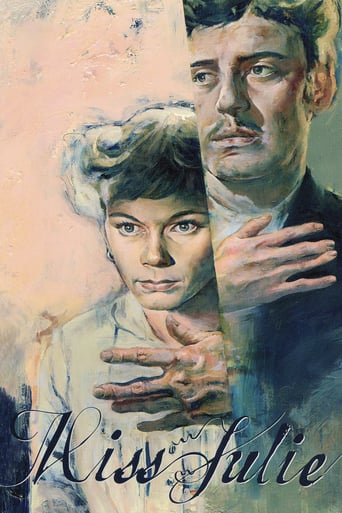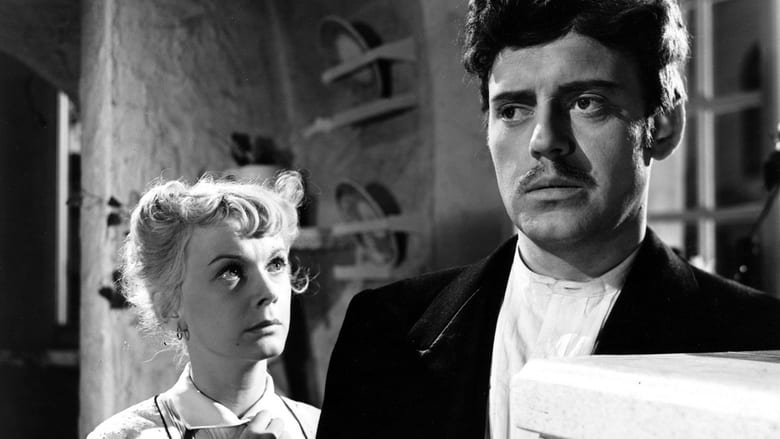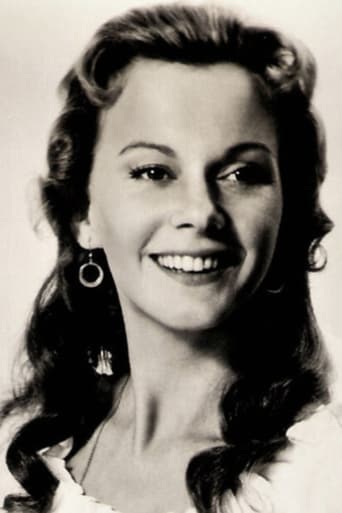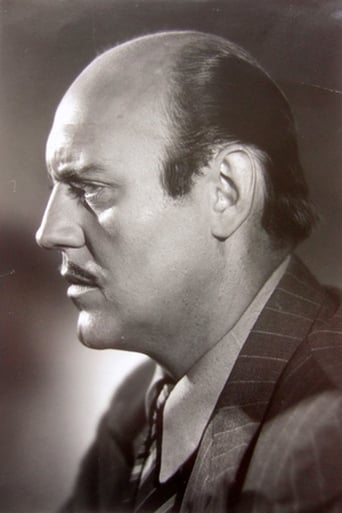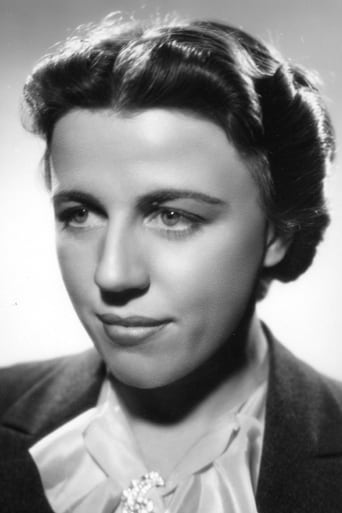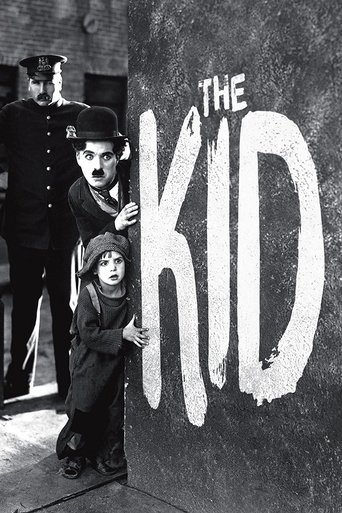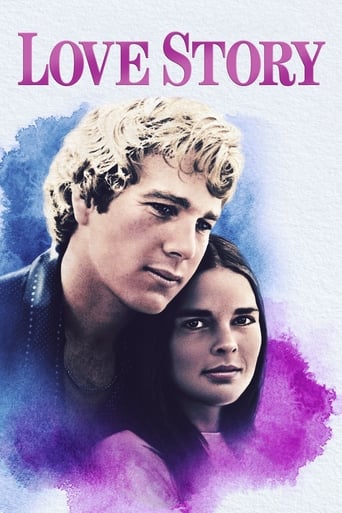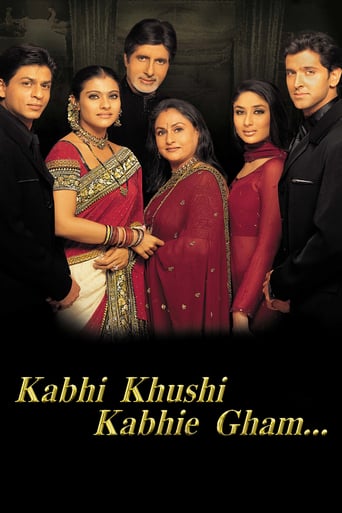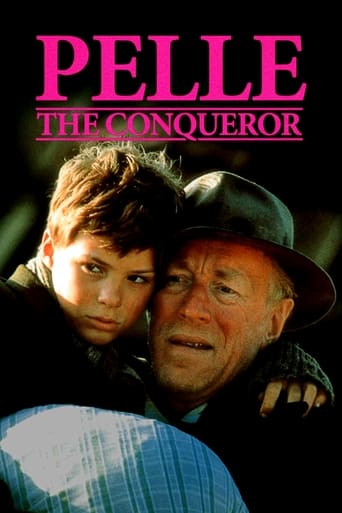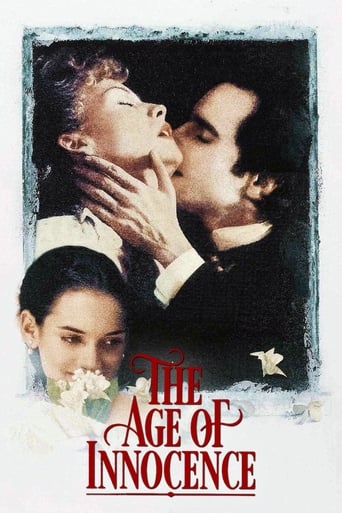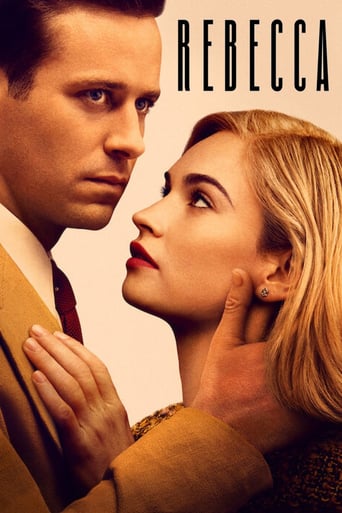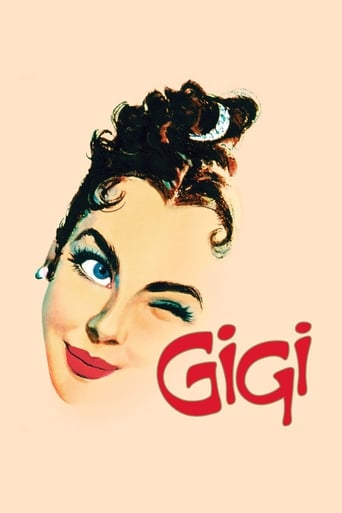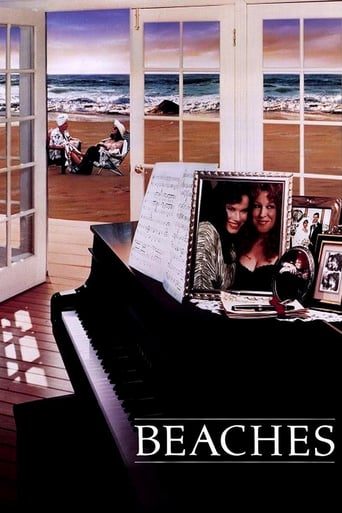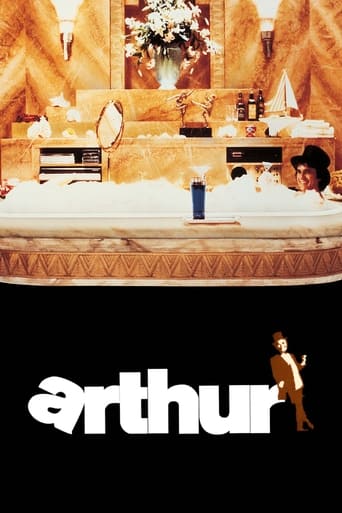Miss Julie (1951)
Based on the play by August Strindberg, Miss Julie vividly depicts the battle of the sexes and classes that ensues when Julie, a wealthy businessman's daughter, falls for Jean, her father's bitter servant.
Watch Trailer
Free Trial Channels
Cast


Similar titles
Reviews
Truly Dreadful Film
Am I Missing Something?
A Major Disappointment
A movie that not only functions as a solid scarefest but a razor-sharp satire.
It's double-bill time, two movie adaptations of MISS JULIE, August Strinberg's play written in 1888, with 63 years apart. The 1951 version is made by Strinberg's fellow Swedish countryman, Alf Sjöberg. Shot in dashing Black and White, Sjöberg's film stars Anita Björk and Ulf Palme as the central pair, Miss Julie, the daughter of a Count (Henrikson) and her servant Jean, during the mid-summer night, they test the limit of seduction, passion and dignity between two incompatible classes, it shared the prestigious Grand Prize in Cannes with Vittorio De Sica's MIRACLE IN MILAN (1951).Empowered by an impactful score from Dag Wirén, the film conjures up the pair's gender-and- class tug-of-war with a phantasmagoria of sequences narrating their dreams and past. The desire for falling versus an ambition of climbing from different starting tier concretes Julie and Jean as perfect specimens to explore their moral and emotional clashes. Outstanding cinematography creates amazing shots where flashback merges together with the present, imagination coexists with the reality. There is no win-win situation in the battle of sex, Miss Julie's paradoxical attempt to patronise her servant and at the same time to be sexually overtaken by him is a self-digging grave for her own undoing, and Jean's struggle between his sexual impulse and deep-rooted inferiority complex is the last nail on her coffin.Anita Björk embodies a graceful mien of nobility emitting a whiff of recalcitrance that makes her portrayal of Miss Julie a distant, spoiled figure never truly reveals her true emotions, whereas Ulf Palme delicately betrays his insecurity and immaturity out of his pseudo-confidence and prince-charmant appearance. Among the supporting cast, Dorff's Kristin, the cook, takes a less prominent function than Morton in the 2014 film, and we also see a very young Max von Sydow giggling in his plain nature. Overall, this vintage oldie is a pleasant discovery, especially compared to the more lyrical but problematic latest version directed by the acting legend Liv Ullmann.With a running time around 130 minutes (contrast with 89 minutes of Sjöberg's picture), but maximally axing the bit parts with three characters only (save the two-minutes opening sequence showing a young Julie rollicking in the forest), Miss Julie (Chastain), the butler John (Farrell) and Kathleen the cook (Morton), this austere version is set in Ireland, and is much more loyal to the text's original form with its take-no-prisoners' method to let the acting-trio wrangling in the turmoil with lengthy monologues and dialogues. It is a chancy choice, Ullmann invests a full trust in her cast, and is willing to take the risk of prolonging the takes to let the emotional repercussions permeate, even music is barely used as an immediate mood-mediator, only at times playing in the background with unobtrusive volume."The night is long and it is so tiring", the film becomes tedious as the same plot and twist blathering on and on; and "class is class", the invisible barrier strips them down to their inveterate bias and beliefs. However, the trio's whole-hearted devotion is the saving grace of Ullmann's labour-of-love. Morton, her Kathleen becomes a morally righteous yardstick to the scandalous affair, John is her beau, and Miss Julie is her mistress, her inward feeling is given a more detailed vent to show off, and Morton is always excellent to watch, modest in looks, but tremendously engaging. Farrell, portrays a quite different character from Palme, his John is more approachable to read, more pliable to manipulate, also more reprehensible to condemn for his cowardice, the explicit canary-murdering scene makes him more like a perpetrator than a foolish social-climber in the end.Chastain stands at odds with Farrell and Morton's Irish accent, but her mercurial personae are wondrous to stare, this could be a tour-de-force if it was on stage, yet as a film, her labour (the same can to said to Farrell and Morton) cannot redeem the sluggish rhythm and a length overstays its welcome, in a sense, only true savant of stage play can luxuriate in it, for most people, the 1951 version is more superior.
Alj Sjoberg's Miss Julie is superior film-making to the kinds of expected adaptations of iconoclastic plays one might usually see. This Miss Julie moves, when at its best, like a real MOTION PICTURE (not to overstate it, just to put the words in bold), where Sjoberg's camera moves in fast and smooth, transfers between present and past with one simple sweep (this part seems the most influential in future post-modern films), and combining music, lush outdoor locations (it IS midsummer night after all) and acting that's fit for the screen just as much as for the stage if not more-so. Reading the play years ago, I was struck by how it would be hard to translate this past the one-room setting, where Julie and Jean confront and have the wild possibility of leaving everything to chance and becoming lovers elsewhere. This was the case with the 1999 adaptation- a respectable but unremarkable turn- but in this much older case it's a sweeping saga of romance plagued by class distinctions and just plain old childhood problems still sticking their claws into present affairs. It's surprisingly fresh in its old-fashioned sense.At first it looks like Sjoberg could be deviating from the bulk of the tone of the Strindberg play and start to make a much livelier version of the material (how that could really be *done* I can't say), with the horde of people dancing and rollicking in frivolity like it's the last days before the new century. But it's a very wise move of contrast: while all the townspeople and others among the Count's lot go into a delirious frenzy here there and everywhere, there's Julie and Jean all abound in their neuroses and dangers of new-found existential connection. While Sjoberg doesn't have much trouble in translating the tone of the basic material- of the difference between rich and poor struck away by the desire to just see these two talk like human beings, warts and all, without the confines of their set places and alignment with those they should be with (Jean with Ingrid, Julie with Lord knows whom)- the trick Sjoberg had was with his style and casting.On both fronts, as luck would have it, he has it made. Anita Bjork is an excellent Julie, and the actor playing Jean is also fantastic at displaying an apt trait of showing off as at times being sincere and not sincere, confusing and riling up poor dear Julie, taught from her youth to hate and be wary of men by her hateful mother. Even little parts that might have been left shorter run in the original play are given further depth, Luke Julie's father, who's seen as something of a conflicted character as a man in power who ends up being much more caring (up to a specific point of incident) than her mother. As for the style, as aforementioned, it's often breathtaking; sequences like the young Jean running away from the lot of adults after him for stealing is shot, edited and composed like something not quite of the early 1950s. If it's a little dated here and there it should be expected, but Miss Julie is a delightful exercise in the unimaginable: an adaptation that lives up to the controversial and exciting spirit of the source.
Some films are so utterly faultless and brilliantly made that one is almost at a loss to find enough superlatives with which to praise them, and yet, at the same time keep it credible. MISS JULIE is one such film, and it seems entirely fitting that one of the greatest Swedish films ever made should be based on the work of one of Sweden's greatest writers. Every single aspect of this film is perfect; the black and white photography, the wonderful musical score by Dag Wiren, the acting from all the cast, but in particular from Anita Bjork who sets a standard in playing Miss Julie that could hardly be bettered. The play which provides the screenplay is of course devastating with the inexorable interplay between class and rank, and human desire and lust overlapping and intertwining, and too, the now almost forgotten concept of "duty" and "honour". If you like movies that make you think, eat away at your heart and memory long after you have seen them, then I cannot recommend MISS JULIE more highly. In the fifty years since it was made, its brilliance has not diminished one jot. A masterpiece and a film to truly treasure.
Sjöbergs best movie. And perhaps the most beautiful Swedish film since Stillers "Herr Arnes Pengar". It's fascinating how Sjöberg captures the different time-levels without interrupting the flow. A true masterpiece and one of few Swedish films that measures up to Bergmans best work in the 50s.

